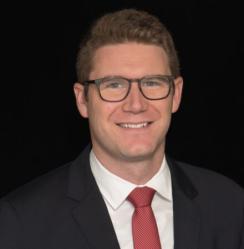2024
On Thursday, November 12, the Center for East Asia Policy Studies at Brookings hosted an online discussion with policy experts to examine the future of U.S.-Taiwan policy.
In opening remarks, Director of Brookings’s Center for East Asia Policy Studies Mireya Solís noted that “Taiwan is an issue that has grown in public prominence in the United States,” and that “there have been growing questions about Taiwan’s security and America’s role in ensuring it.”
Following Solis’ remarks, Fellow, Michael H. Armacost Chair, and Interim Chen-Fu and Cecilia Yen Koo Chair in Taiwan Studies Ryan Hass introduced the panel, which consisted of Richard C. Bush, nonresident senior fellow at Brookings; Bonnie S. Glaser, senior adviser for Asia and the director of the China Power Project at the Center for Strategic and International Studies; Eric Sayers, vice president at Beacon Global Strategies LLC and adjunct senior fellow at the Center for a New American Security; and Syaru Shirley Lin, nonresident senior fellow at Brookings. The conversation explored the next administration’s inheritance on U.S.-Taiwan relations and examined a range of issues critical to Taiwan’s future, including Taiwan’s domestic political dynamics, international space, security, economic, and technology issues.
In an overview of the current state of U.S.-Taiwan affairs, Glaser observed that relations are quite strong, with both sides’ interests “in a period of significant convergence.” Both, for instance, have growing concerns about China’s policies and ambitions.
Bush encouraged Taiwan watchers to “please be patient” with the Biden administration on details about its Taiwan policy, as its focus will largely be domestic at first. Bush pointed out that Biden voted for the Taiwan Relations Act and that he and his senior advisers “place a lot of importance on democracy and have respect for democratic systems like Taiwan.”
Sayers noted that “the interest level on [Capitol] Hill for Taiwan…and the Indo-Pacific more broadly, it’s never been higher.” He suggested that Biden could continue the momentum in developing the relationship by striving for a trade agreement, elevating “Taiwan as a global model for public health cooperation,” and making “China the explicit priority in their national defense strategy.”
Lin, offering comments from Taiwan, noted that Taiwan people are cautious about the future of Taipei’s relationship with Washington They have felt abandoned in the past, and have questions about the unknown implications of the incoming Biden administration for Taiwan.
On Taiwan’s domestic political situation, Bush noted that Beijing’s ultimate objective is “to incorporate Taiwan within the PRC system under the one-country, two systems formula.” He warned of the risks to Taiwan of domestic political divisions over the degree to which China is a threat and what to do about it.
Regarding Taiwan domestic sentiment toward China, Lin remarked that Taiwan people have been increasingly de-incentivized to go to China for work and to conduct business, particularly since “Xi Jinping decided to equate reunification with one country, two system.” She suggested that Biden should respond to this shift and strive to construct new avenues for U.S.-Taiwan engagement, such as through an “investment treaty or some kind of trade agreement.”
On Taiwan’s international space, Glaser suggested that Biden should support efforts to strengthen Taiwan’s dignity and respect on the world stage, including by supporting the restoration of Taiwan’s observer status in the World Health Assembly.
On security issues, Sayers encouraged the Biden administration to speed up deliveries of weapons systems and “increasing the number of anti-ship and anti-air weapons in the ROC [Republic of China] arsenal.” He also suggested that the United States and Taiwan should advance “a rigorous exercise program that includes service level, and even joint training with [Taiwan’s] military.” Glaser emphasized that Taiwan needs to establish a whole-of-society effort in “appreciating the threat throughout the entire society.” .
In her remarks on Taiwan’s economic issues, Lin encouraged the United States to support Taiwan’s desire to engage in multilateral frameworks in order to escape the high-income trap, and also to diversify trade and investment from China.
Finally, Sayers suggested that the United States should engage Taiwan on technology issues, which would expand the scope of the U.S.-Taiwan economic and national security relationship. He predicted that a Biden administration would pursue a more balanced mix between defensive and offensive measures to strengthen America’s competitive advantages vis-à-vis China, including on issues such as strengthening America’s semiconductor manufacturing capacity. Such steps could potentially benefit Taiwan firms that are investing in building production capacity in the United States.
Agenda
-
November 12
-
Moderator
 Ryan Hass Interim Chen-Fu and Cecilia Yen Koo Chair in Taiwan Studies, The Michael H. Armacost Chair, Fellow - Foreign Policy, Center for Asia Policy Studies, John L. Thornton China Center @ryanl_hass
Ryan Hass Interim Chen-Fu and Cecilia Yen Koo Chair in Taiwan Studies, The Michael H. Armacost Chair, Fellow - Foreign Policy, Center for Asia Policy Studies, John L. Thornton China Center @ryanl_hassPanelist
 Richard C. Bush Nonresident Senior Fellow - Foreign Policy, Center for Asia Policy Studies, John L. Thornton China Center
Richard C. Bush Nonresident Senior Fellow - Foreign Policy, Center for Asia Policy Studies, John L. Thornton China Center Bonnie S. Glaser Director of the Asia Program - The German Marshall Fund of the United States @BonnieGlaser
Bonnie S. Glaser Director of the Asia Program - The German Marshall Fund of the United States @BonnieGlaser Eric Sayers Adjunct Senior Fellow, Asia-Pacific Security Program - Center for a New American Security @DEricSayers
Eric Sayers Adjunct Senior Fellow, Asia-Pacific Security Program - Center for a New American Security @DEricSayers
-


